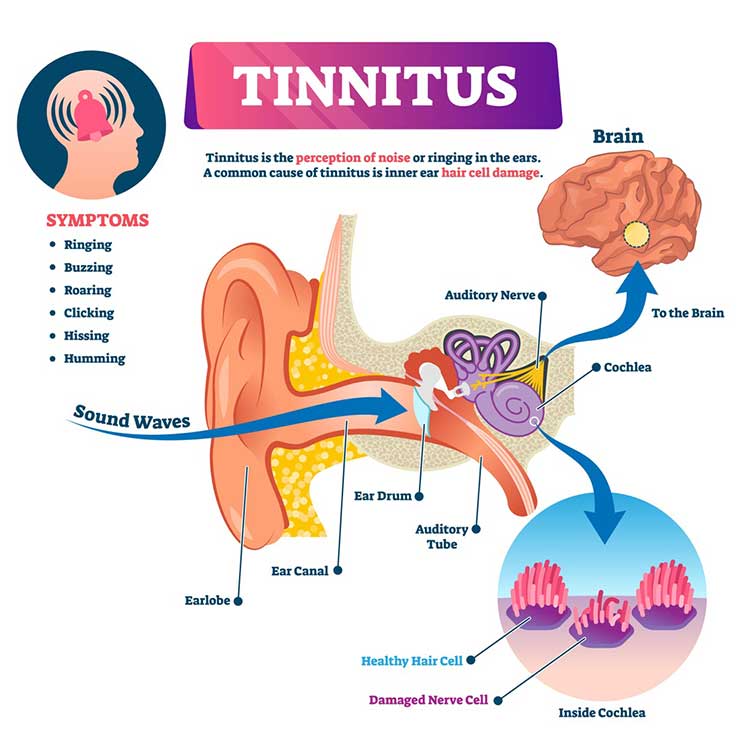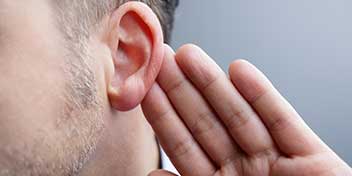Tinnitus
Sufferers of tinnitus often describe it as a loud ringing, whirring, roaring, hissing, clicking, or buzzing sound in the ear or head.
The sound can range from intermittent and annoying to constant and debilitating and can even impede your ability to hear. Researchers have linked tinnitus to a variety of medical conditions, so treatment options are just as variant.
What causes tinnitus?

Tinnitus is a symptom of a variety of health conditions, so it can be hard to pinpoint the cause. However, a health professional may find a correlation between the onset of one medical issue and the period when your tinnitus began.
One of the most common causes of tinnitus is hearing loss. Excessive noise exposure resulting in permanent damage to the auditory system and hearing loss due to aging are the most common reasons for the onset of tinnitus.
Other tinnitus causes include:
- Wax buildup in the ear canal
- Jaw misalignment
- Head and neck trauma
- Certain types of tumors
- Fatigue
- Certain medications such as aspirin and quinine
Ear or sinus infections
Some diseases and disorders such as Meniere’s disease, hypothyroidism, cardiovascular disease, and kidney disease.
Treatment Options

Tinnitus can be such a persistent condition that many people just “learn to live/deal with it,” but going all or most of your life with a compromised hearing experience does not have to be a life sentence.
Two general approaches to treating tinnitus are to reduce the intensity and to reduce the patient's reaction. These approaches can overlap and include:
- Masking through sound therapy - Uses an external sound source to eliminate or reduce the awareness of the tinnitus
- Relaxation therapy - utilizes progressive muscular relaxation to reduce overall reactions to stress
- Cognitive behavioural therapy (CBT) - uses attention control, imagery training and relaxation methods to create more positive thinking about tinnitus
- Tinnitus retraining therapy - a combination of directive counselling and sound therapy
- Hearing aids - this solution can be combined with masking treatments, sound therapy, CBT and relaxation therapy. This may be the ideal solution if you also have a hearing loss
Tinnitus Prevention
Since a variety of health conditions can trigger tinnitus, an overall healthy lifestyle can reduce your risk.
- Practice safe listening by wearing noise protection in loud environments and reducing your noise exposure.
- Eat healthy and stay active to reduce your risk for diseases that could trigger tinnitus.
Healthy hearing begins with a hearing test. If you think you may have a tinnitus related hearing loss, or even a hearing loss in general, you can book a free, no obligation hearing appointment at HearingLife today.
References
Price, Jillian. “Introduction to Tinnitus.” Microsoft PowerPoint presentation.





